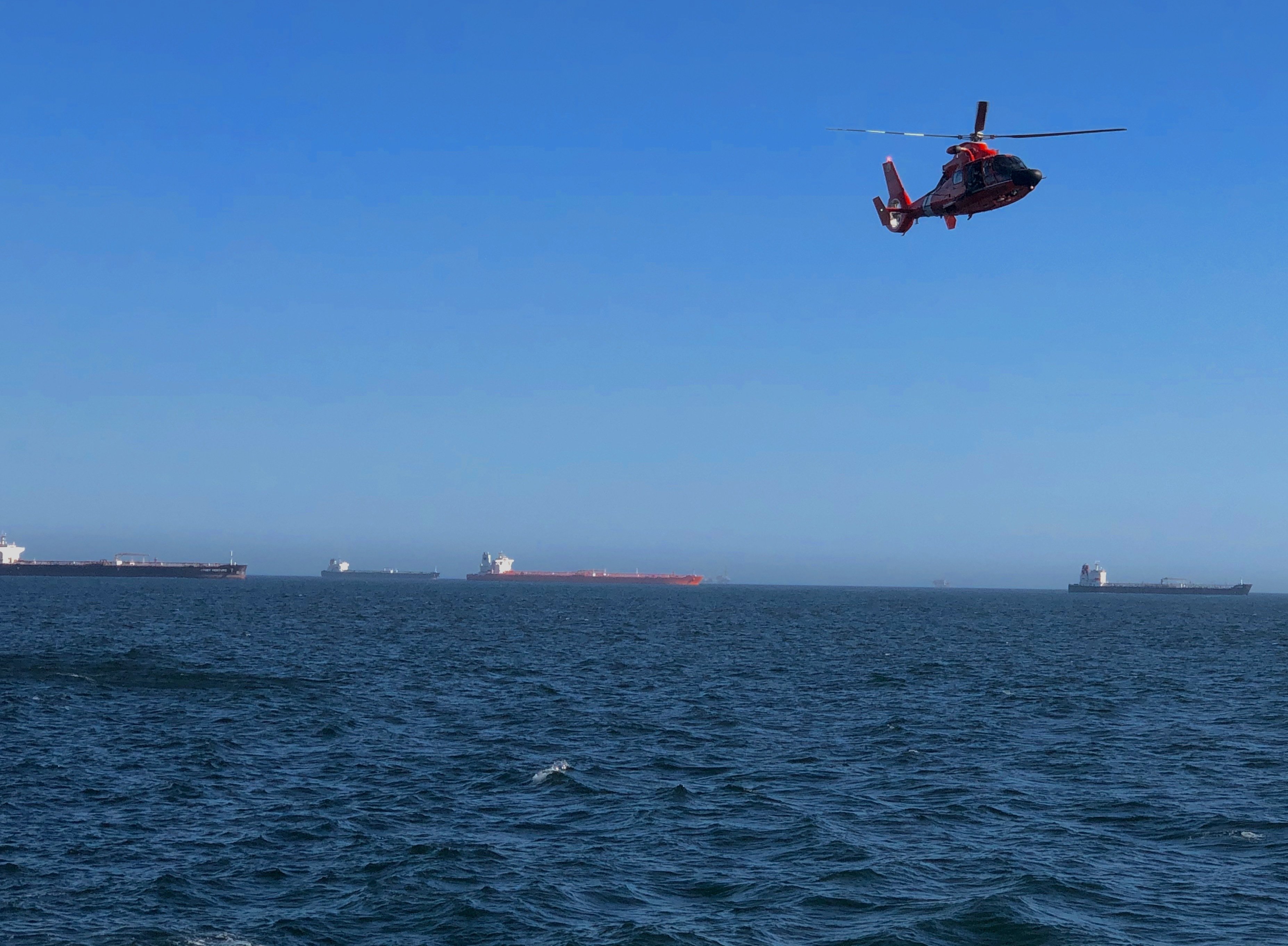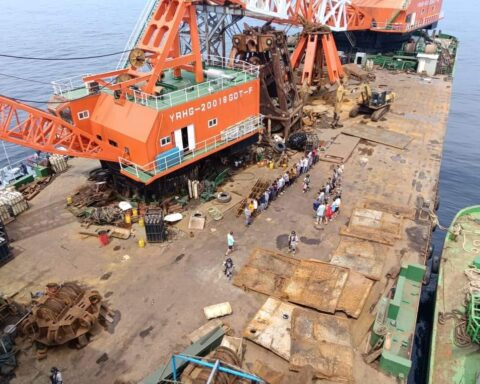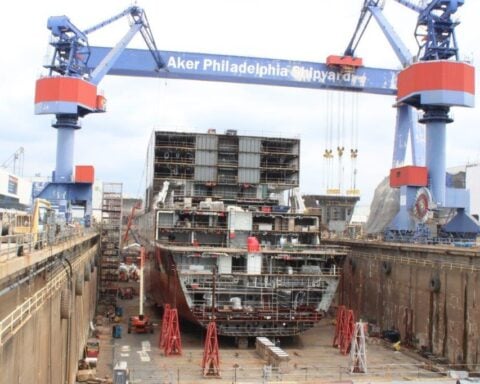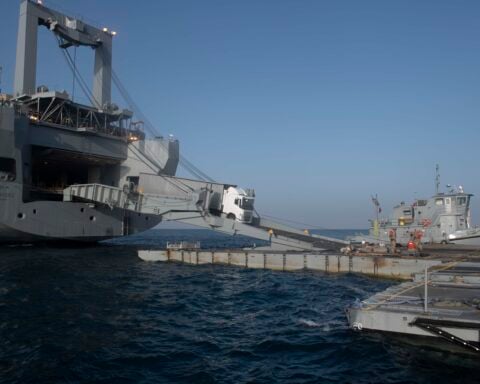
More than two dozen oil tankers are parked just off the California coast, holding the equivalent of 20 percent of the global daily oil consumption, with nowhere to go.
As of Thursday afternoon, 27 tankers were parked outside the ports of Los Angeles and Long Beach, Calif., essentially turning the waters into a floating oil storage facility. The U.S. Coast Guard is monitoring the phenomenon, which was reported by several West Coast news outlets, including Bloomberg.
Around the world, it’s not uncommon to see cargo ships parked outside busy ports such as Shanghai and Singapore, maritime expert Sal Mercogliano told USNI News. Mercogliano is an associate professor of history at Campbell University in North Carolina and holds a merchant marine deck officer license.
“What you don’t see is fully loaded tankers waiting to come discharge in the United States. That’s unusual,” Mercogliano said. “It is entirely due to the fact that oil has bottomed out in prices. The Russians and OPEC, with dropping oil prices, have just flooded the market with cheap gas.”
The storage facilities on land are near capacity, while oil use has dropped while Americans remain in place, Mercogliano said. The result is tankers are sitting off the coast, full of oil, waiting for demand to pick up.
“Due to the unique nature of this situation, the Coast Guard is constantly evaluating and adapting our procedures to ensure the safety of the vessels at anchor and the protection of the surrounding environment,” Cmdr. Marshall Newberry, from Coast Guard Sector Los Angeles/Long Beach, said in a statement. “Coast Guard watchstanders, in partnership with the Marine Exchange of Southern California, are closely monitoring each anchorage to manage the increased number of tank vessels we’re seeing off the California coast.”
For now, Mercogliano doesn’t think the parked tankers pose much of a hazard to shipping. The anchorage off the coast of Los Angeles and Long Beach is an open ocean anchorage.
“They’re going to be safe sitting off there. It’s an unusual spike to see that many ships,” Mercogliano said.
If the tankers remain parked long enough, though, Mercogliano said they might have to move further out to sea to dump their treated sewage and wastewater. When the tankers do enter the port, Mercogliano doesn’t expect an increased risk of catching COVID-19. The crews are isolated from each other now and once in port are unlikely to go ashore.
As of Thursday, Los Angeles County reported 17,508 positive cases of COVID-19 and 797 deaths. The City of Long Beach, Calif., reported 513 cases of COVID-19 as of Thursday. Statewide, California had 35,396 COVID-19 cases.
When the oil use picks up and the storage capacity increases, the tankers off the California coast might move to another port. The reason these tankers are parked off the U.S. coast now has to do with a long-term strategy of Russia and OPEC, Mercogliano said, with their goal being to take control of the oil market.
“What the Russians and OPEC are trying to do is drive the American shale producers out of business,” Mercogliano said. “They’re doing a pretty effective job of doing that.”





